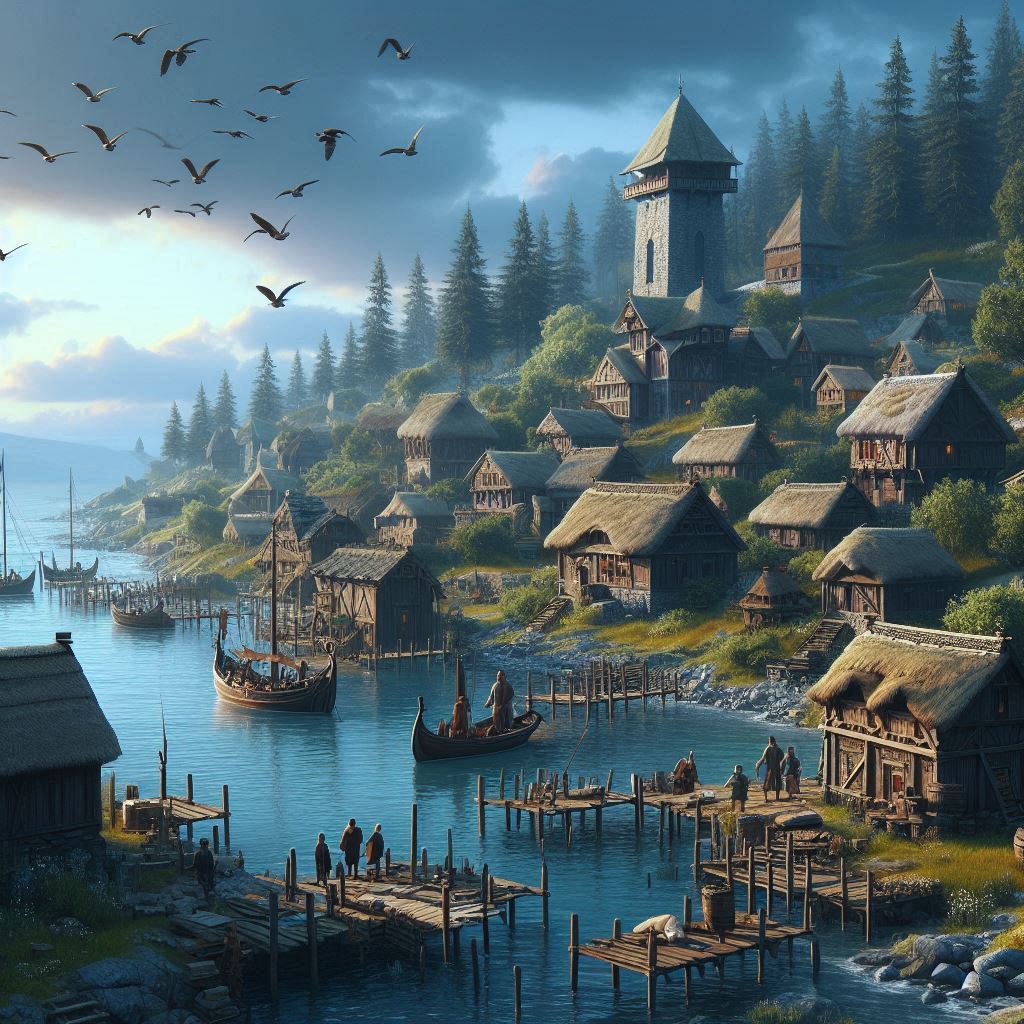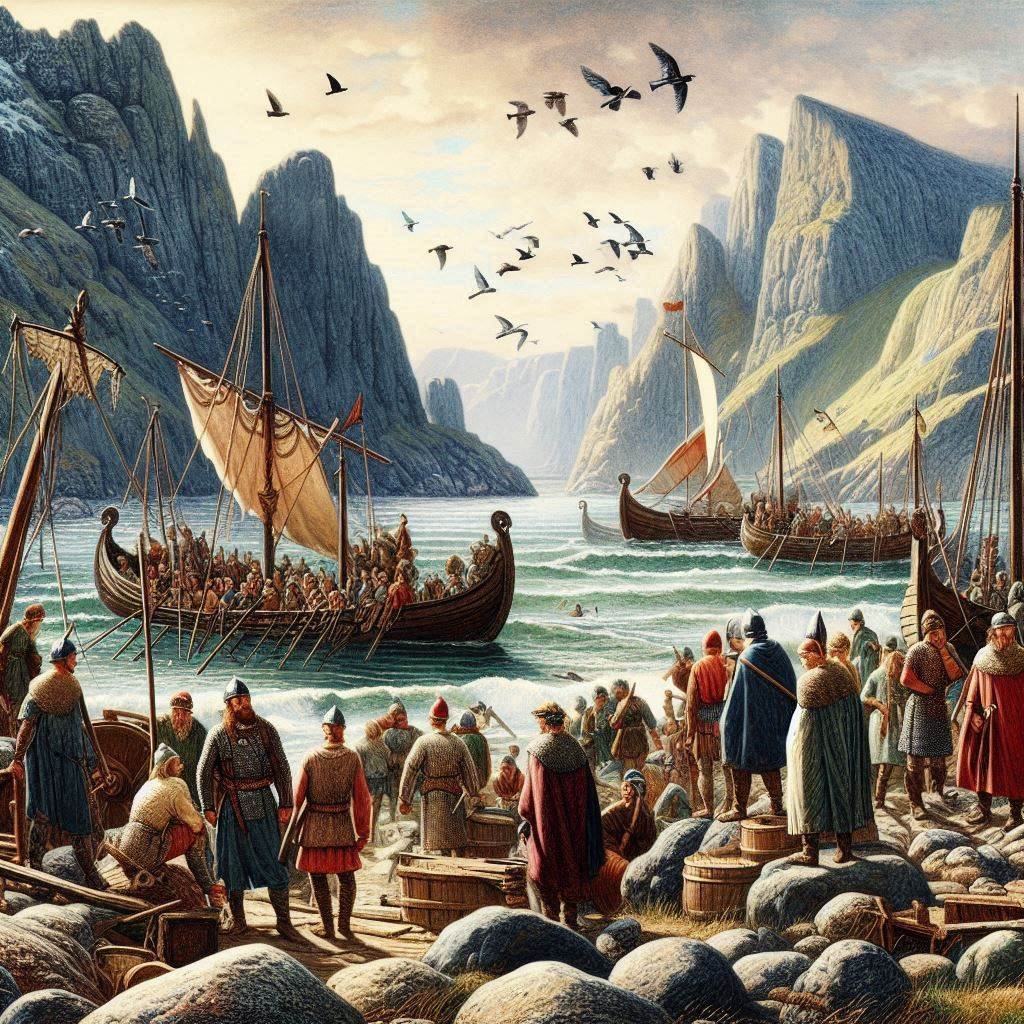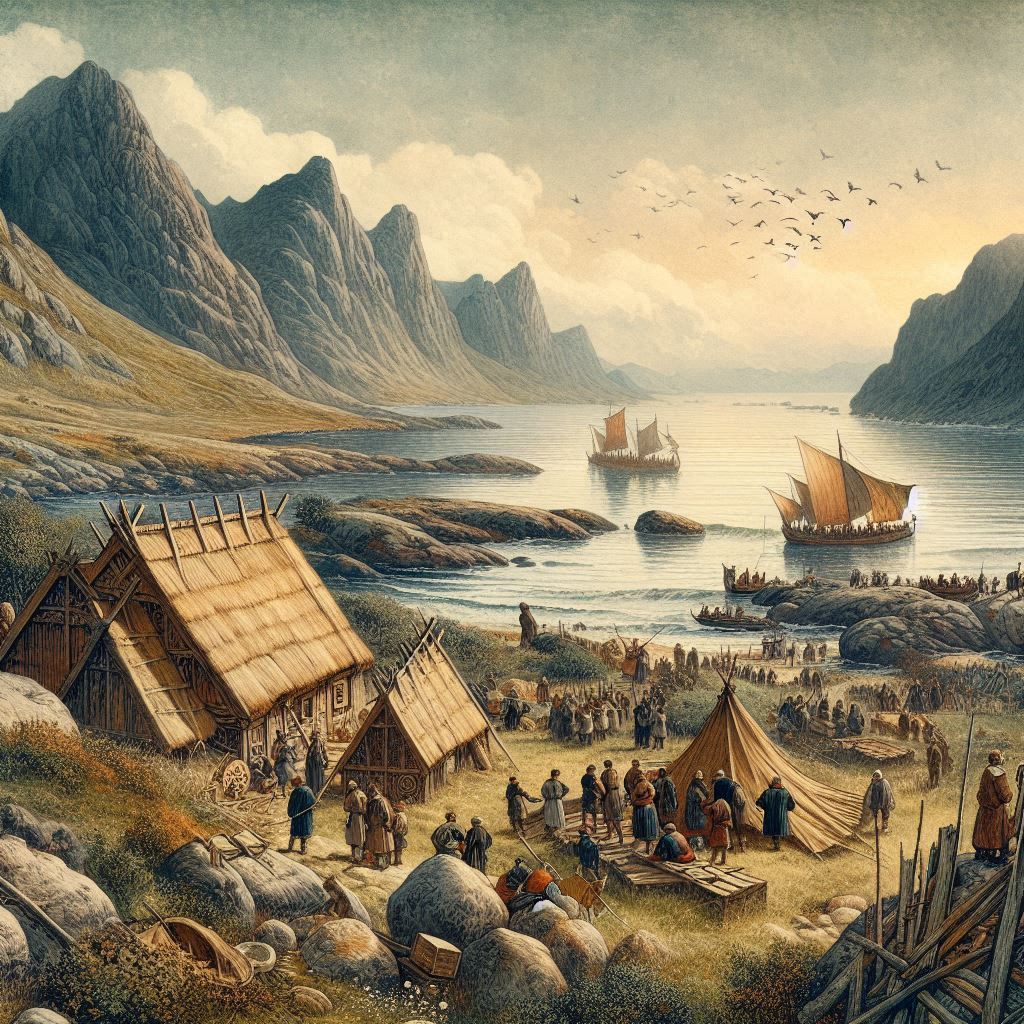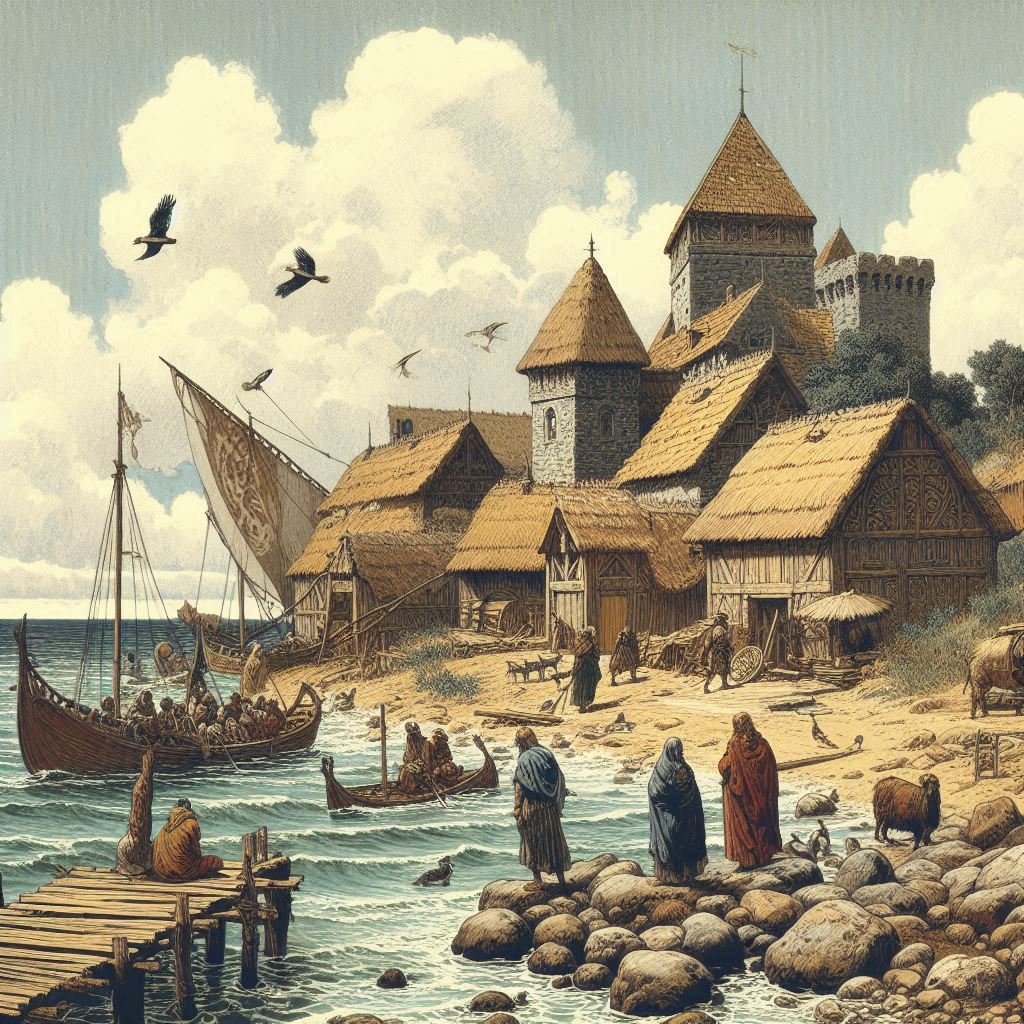Maritime culture
MARITIME SUBCULTURES
GENERAL SKILLS- Boat Pilot
- Climbing
- Direction Sense
- Disarm Trap
- Diving
- Fishing
- Fletching
- Hide Item
- Hostile Environment
- Jumping
- Leatherworking
- Mapping
- Mimery
- Navigation
- Rappelling
- Read Tracks
- Rope Mastery
- Rowing
- Rowing
- Sailing
- Sense Ambush/Assassin
- Set Traps
- Stalk & Hide
- Swimming
- Tightrope Walking
- Time Sense
- Trap Building
- Weather-Watching
Legend
“People of the coastlands… have tricked oh so many—a pirate, trader, and indland lord.”
Description

Maritime cultures are defined by their intimate relationship with the sea. Whether they live on its shores, within its depths, or traverse its vast expanse, their lives are intrinsically tied to the ocean. They are often adaptable, resilient people with a deep respect for the power and mystery of the sea.
Lifestyle: A maritime lifestyle is marked by a strong sense of community and interdependence. Life revolves around the rhythms of the tides and weather patterns. Fishing, trade, and exploration are common pursuits, and there’s a prevailing spirit of adventure and risk-taking.
Diet: Maritime cultures rely heavily on seafood, including fish, shellfish, and seaweed. Their diets are rich in proteins from the ocean and supplemented by trade goods such as grains, fruits, and vegetables. However, their dependence on the sea means that they are susceptible to fluctuations in fish populations and weather conditions, leading to occasional scarcity.
Traditions and Stories: Maritime cultures have rich oral traditions centred around the sea. Tales of mythical creatures, perilous voyages, and the bounty of the ocean are passed down through generations. There is a deep reverence for ancestors and those lost at sea.
Marriage Pattern: Marriage often serves as a strategic alliance, whether for strengthening family ties, securing trade partnerships, or ensuring the continuation of a maritime legacy. Arranged marriages are common, with emphasis on finding partners with complementary skills.
Religion: Maritime religions typically involve deities associated with the sea, storms, and sea creatures. There’s often a strong belief in the spiritual power of the ocean and its inhabitants. Rituals and ceremonies are often tied to the lunar cycle and the changing seasons.
- Maritime religious systems are often hierarchical, with priests or shamans holding significant authority. However, there can also be a strong element of personal spirituality and connection to the sea.
- God-Mortal Interaction: Divinities are often perceived as powerful and capricious forces of nature. Interaction with mortals is often indirect, through oracles, dreams, or natural phenomena.
- Rituals: Maritime rituals focus on ensuring the safety of sailors, honouring the sea’s bounty, and appeasing the sea gods. They often involve sacrifices, offerings, and communal celebrations.
- Impact on Society: Maritime societies tend to be egalitarian, with a strong emphasis on cooperation and shared risks. There is a deep respect for the sea’s power and the knowledge of experienced mariners.
Skjald Sejrik
Craftsmanship: Maritime cultures excel in crafting items related to seafaring. Shipbuilding, navigation tools, fishing equipment, and items made from marine materials are common. There’s also a tradition of creating intricate decorative items inspired by the ocean.
Clothing & Decoration: Maritime clothing is practical and often made from materials like leather, wool, and linen that can withstand the harsh marine environment. Decorations often feature nautical motifs, such as shells, fish, and seaweed.
Armour: Maritime cultures prioritise mobility over heavy armour. Leather, chain mail, or scale armour is common, with a focus on protection against bladed weapons.
Weapons: Maritime weapons are often versatile, suitable for both land and sea combat. Swords, daggers, and axes are common, along with specialised weapons like harpoons and boarding axes.
Special Items: Maritime cultures often possess unique items related to the sea, such as enchanted navigational instruments, magical artefacts linked to sea creatures, or rare treasures salvaged from shipwrecks.
Skjald El Mary
Time: Maritime cultures have a deep respect for the cyclical nature of time, influenced by the tides, seasons, and celestial bodies. Time is often measured by natural phenomena rather than precise instruments. The past, present, and future are intertwined, with stories of ancestors and legends shaping the present.
Accomplishment and achievement: Accomplishment is often measured by one’s contributions to the community, skill as a sailor, and the ability to navigate the challenges of the sea. Exploration, trade, and the discovery of new lands are highly valued. Personal glory is often tempered by the collective spirit.
Authority Interaction: Authority figures in maritime cultures are often experienced sailors, ship captains, or those with deep knowledge of the sea. Leadership is often based on merit and proven ability rather than hereditary lineage. There’s a strong emphasis on consensus-building and shared decision-making. Maritime people are typically outgoing and adaptable, with a strong sense of camaraderie. They value hospitality and are open to new experiences. However, they can also be fiercely protective of their home and community.
Fears & Inabilities: Common fears among maritime cultures include storms, shipwrecks, becoming Arisen, and the vastness of the unknown ocean. They also fear sea monsters, rival seafaring nations, and losing connection to the sea. Inabilities often relate to skills required for survival at sea, such as navigation, swimming, and fishing.
Mien: Culture has a medium-influenced demeanour, but individual personality is still evident. Maritime people often have a weathered appearance, reflecting a life spent in the elements. Their eyes often hold a sense of adventure and curiosity. Their posture is typically strong and balanced, reflecting their adaptability to the sea.
Mannerism: adaptable, resilient, suspicious, yet vocal and animated. They love to talk, laugh, and sing. Maritime people have a direct and practical communication style. They value honesty and clarity. Body language is often expressive, reflecting their emotional connection to the sea.
Prejudices: Maritime cultures might be prejudiced against land-dwellers, seeing them as naive or fearful. They might also have rivalries with other maritime cultures, competing for trade routes or fishing grounds.
Skjald Vinotis
Resistance: Maritime people often develop a natural resistance to seaborne diseases due to their exposure to various environments.
Disease Resistance: Exposure to marine life might grant some level of resistance to certain diseases. However, they might be vulnerable to diseases from distant lands, but this would vary depending on the specific disease and the individual.
Poison Resistance: Low. Their focus on seafaring and fishing does not contribute much to poison resistance.
Remedies: Maritime cultures possess a deep knowledge of marine plants and animals with medicinal properties. They also develop remedies using sea-based ingredients.
Skjald Sigurd
History

Coastal cultures have a long history of migration and exploration, with sea legends and stories passed down through generations. Their tales involve encounters with mythical creatures, lost treasures, heroic maritime exploits, conflicts with pirates, and the rise and fall of maritime empires.
Skjald Ulrich
Cartography

Coastal people traditionally live at lowland shores or nearby woods and foothills. Many are settled fishermen, farmers, and herders in rural areas, while others are ferrymen, river, and harbour tenders, or harvest resources connected to water.
Skjald Yell'a'Beard
Organisation

Coastal communities often have a hierarchical structure based on seafaring experience. Fishermen, merchants, and shipbuilders hold respected positions. Governance ranges from democratic councils to maritime dictatorships.
Skjald Ulrich
Special

Coastal cultures possess unique maritime technologies, including advanced boat building, navigation tools, and fishing techniques. Their deep understanding of the sea and its resources sets them apart as master seafarers and traders.
Skjald Sigurd
Last Updated on 2024-10-20 by IoM-Christian
